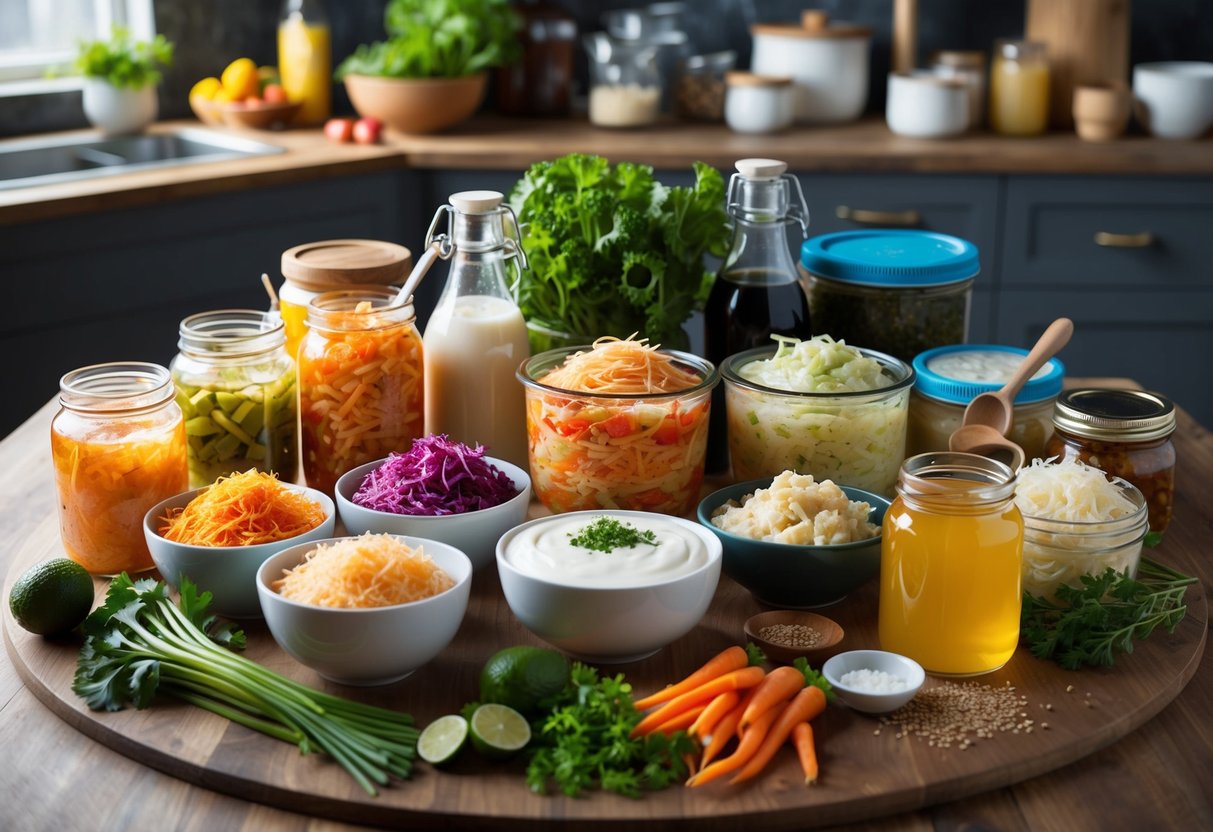
In recent years, there has been a growing interest in the connection between diet and gut microbiome health. Fermented foods, such as yogurt, sauerkraut, and kimchi, are teeming with beneficial bacteria that can play a pivotal role in maintaining digestive balance. Incorporating these foods into your diet can boost gut health by introducing probiotics that support a healthy microbiome.
The gut microbiome is an intricate ecosystem of microorganisms that significantly influences bodily functions, from digestion to immune responses. Fermented foods contribute to a diverse and balanced microbiome, which is vital for reducing the risk of certain diseases. These foods not only aid digestion but also support nutrient absorption and bolster overall well-being.
Fermented foods have been a staple in various cultures for centuries, valued for their nutritive properties and natural preservation. The process of fermentation enriches these foods with probiotics, enhancing their nutritional profile. People seeking to improve their digestive health can benefit from the inclusion of these foods, making them an integral part of a balanced diet.
Fundamentals of Gut Microbiome Health
The gut microbiome is an intricate system that significantly influences health. Diet and microbial interactions are crucial in maintaining a balanced microbiome, which supports immune functions.
Defining Gut Microbiota and Its Importance
Gut microbiota comprises trillions of microorganisms residing in the digestive tract. These organisms include bacteria, fungi, viruses, and other microorganisms, each playing a vital role in digestion and nutrient absorption.
A healthy gut microbiome helps to synthesize vitamins and break down complex carbohydrates. It also produces short-chain fatty acids that yield energy.
In addition to digestive functions, these microorganisms are pivotal in protecting against pathogenic bacteria by maintaining a balanced microbial environment. This balance is crucial for sustaining overall health, underscoring why gut microbial harmony is essential for well-being.
Impact of Diet on Microbiome Diversity
Diet profoundly affects microbiome diversity. A varied diet rich in fibers, fruits, vegetables, and fermented foods promotes a thriving microbiome. These elements provide essential nutrients and help develop a more diverse microbial community.
Conversely, a diet high in processed foods, sugars, and unhealthy fats can adversely impact microbial diversity, leading to imbalances. Lack of diversity may contribute to digestive disorders and other health issues.
Regular consumption of nourishing foods can help maintain a balanced microbiome. The interplay between diet and gut health remains a significant area of research, emphasizing the importance of mindful eating habits.
Interplay Between Gut Microbes and Immune System
The gut microbiome and the immune system share a dynamic relationship. Microorganisms in the gut play a vital role in training immune cells to recognize and respond to pathogens. This interaction strengthens the body’s defenses, improving resilience against infections.
Microbial balance supports the immune system by maintaining an intact intestinal barrier. This barrier prevents harmful substances from entering the bloodstream. When the gut microbiome is disrupted, it can impair immune functions, increasing susceptibility to illnesses.
Understanding this connection highlights the crucial role gut health plays in overall immunity. A balanced microbiome not only supports digestion but is integral to robust immune defenses.



